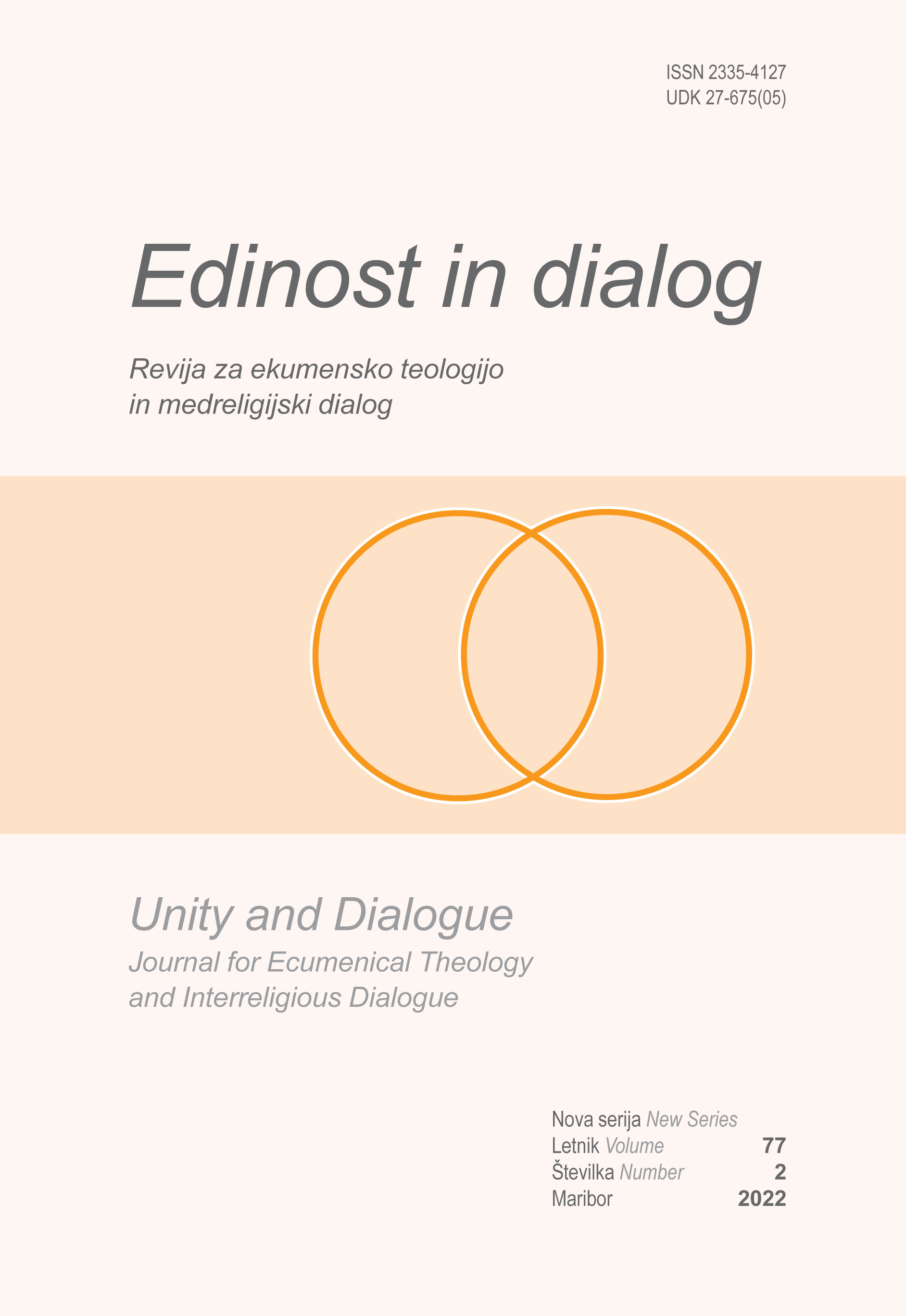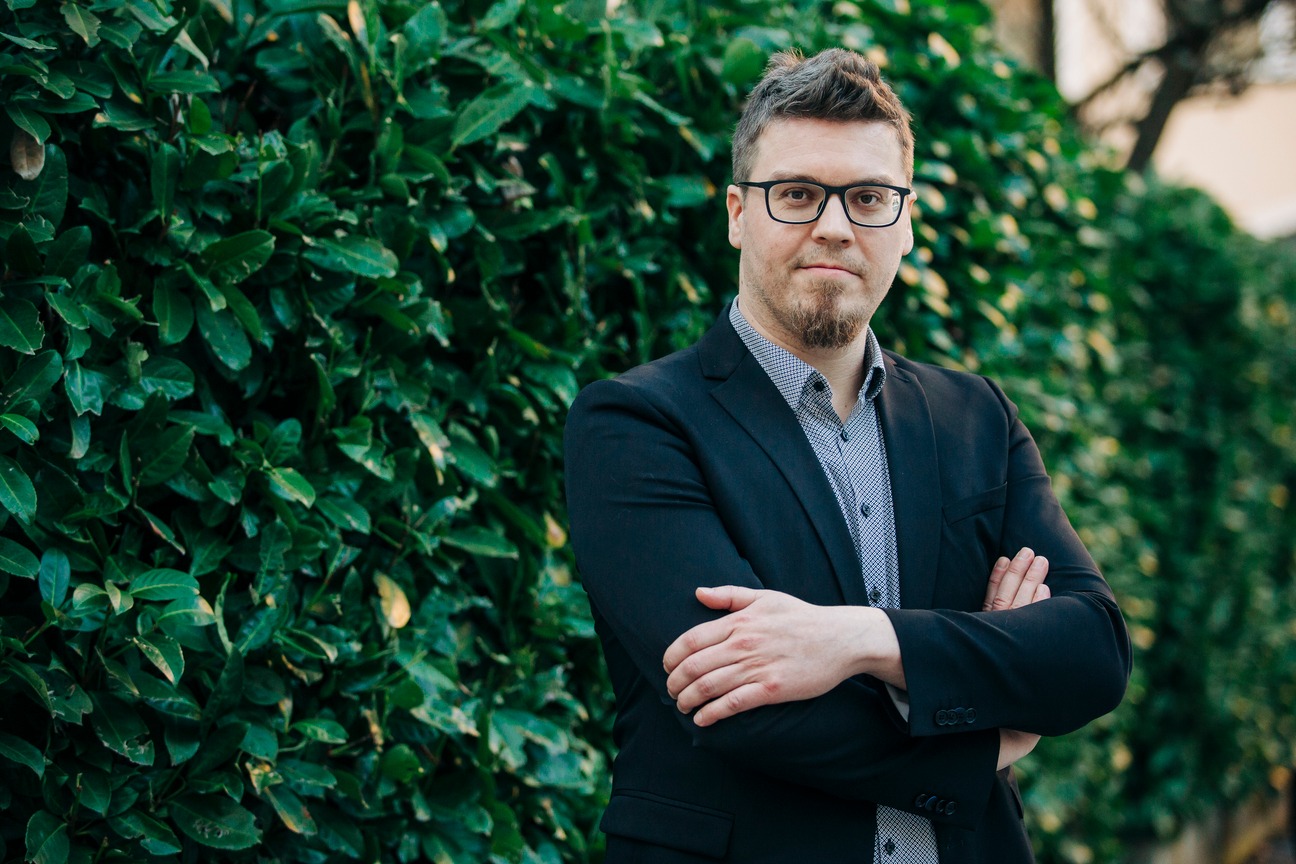Edinost in Dialog (Unity and Dialogue) is an open access journal based in Slovenia, published by the Faculty of Theology of the University of Ljubljana. As part of our ‘Story behind the journal’ series, DOAJ spoke with Dr. Samo Skralovnik, the Editor in Chief.
Tell us about Edinost in Dialog
Edinost in Dialog (Unity and Dialogue) is a scientific journal in the field of ecumenism and interreligious dialogue. The journal first began publishing in 1924 under the name Kraljestvo Božje (Kingdom of God) and rebranded as Edinost in Dialog in 2013. We publish original research in theology, religious studies, philosophy, literature, and social sciences, to mention a few areas. All our publications have a strong emphasis on research in ecumenical, intercultural and interreligious traditions. We deal with modern theological and cultural problems that are both presented in Slovenia and in broader regions, so we cover research of both national and international importance.
The majority of our articles, up to two third of the conent, are written in Slovenian. This is a language only spoken by 2 million people and for that reason I think it is important to pay specific attention to our home language. We do, of course, also publish in other languages such as English, French, German, Italian etc.
The journal became open access in 2020. The current publishing environment, as I see it, is defined by two fundamental conditions. Firstly, free online publication of scientific results, without a time embargo. Secondly, an appropriate copyright model that enables the free distribution of otherwise copyrighted works. We had no problems fulfilling the first condition since the journal had a digital edition since its beginning in 2013. However, we originally used a copyright model where we asked authors to transfer their copyright to the journal. The shift to a Creative Commons licence involved getting legal and financial advice from experts within our university, as the journal is funded by the Slovenian Research Agency, the main funder of scientific activities in Slovenia. This shift to a Creative Commons licence was practically made possible only when University of Ljubljana and the Slovenian Research Agency joined cOAlition S.
What’s your role at the journal, and what motivates you to be involved with Edinost in Dialog?
I am a bible scholar, so the topic of the journal is close to my heart! I started working as an editor-in-chief assistant in 2015, and have been the editor-in-chief since October 2021.
I’m motivated to be involved with the journal for two reasons: Firstly, I am deeply convinced that striving for dialogue is the only possible strategy for our survival, on an international level. I believe that interface and conflicts cannot be resolved without an in-depth knowledge of one another. The most efficient way to prevent future conflicts is through dialogue, and to engage in dialogue based on scientific approaches. However, we must not exclude others by keeping the dialogue only in academic circles, and open access is a way to prevent this.
Secondly, I am motivated to be involved due to a pursuit of scientific excellence. My predecessor had a clear vision for the journal, which I have continued and built upon. We’ve aimed to place the journal on the international map. Our focus has led to the journal being indexed in several important databases, and for example, being ranked in the top quartile on Scimago Journal Rank.
I do believe there must be something more than just scientific points, rankings and indexing. These things, of course, show us that we’re on the right track and that we’re producing things of quality. However, the heart must be in it too.
How does the journal make a difference in the subject field or region?
From its very beginning, the journal has been publishing the discoveries and findings of the most prominent Slovenian researchers, and other theologists, philosophers, and humanists around the world. The journal has a significant impact on the development of interreligious dialogue and interreligious thoughts in Slovenia and in broader regions.
Unity and Dialogue has been the initiator and organiser of many international conferences, with up to 50 scholars from different countries and of different religious beliefs. At the moment, we’re also collaborating with the Centre of Jewish Heritage Synagogue on an international conference entitled “The Influence of Religion on Politics and Public Life in the Middle East”.
What are your personal views on open access?
I believe that all parts of the research life cycle; libraries, researchers, and publishers, must work together towards a system of scholarly publishing that is more accessible, efficient, fair, and transparent. Open access enables scholars to verify previously published data, to combine different data and work more interdisciplinary in national and international frameworks. This makes the research cheaper, quicker and significantly improves its quality. It really is a win-win situation, as open access benefits researchers, institutions, publishers and societies.
I believe it is unacceptable that in a world that is connected on so many levels, some scientific fields or findings become monopolies where researchers or the public do not have access. I strongly believe that science must be open for all.
Why do you think DOAJ is important to the scholarly community?
As I see it, DOAJ provides some kind of “certificate”, that is a guarantee that a journal has achieved a set of quality standards.
Using our journal as an example: On one hand the Slovenian Research Agency has a list of international bibliographic databases that are taken into account for the categorisation and scoring of scientific publications in Slovenia. But on the other hand, the agency itself does not have the tools or the possibility to assess every journal, so existing databases are used. DOAJ is one of these databases used. Before Edinost in Dialog was indexed, an article published in the journal received around 50 SICRIS points (Slovenian Current Research Information System). After indexing, the articles would receive around 80 points. This is a big leap for us, and we have noticed positive effects from other databases too, though there are also other factors involved. However, the inclusion of Edinost in Dialog has had a huge impact on us in terms of both visibility and ranking.
What could DOAJ do in the future to help journals such as yours?
Perhaps some regular monthly or yearly virtual meetings could be held to address some specific problems that editorial boards meet. There are lots of resources online, but sometimes information can be difficult to find. It would be good to have some online courses or training to help individuals and publishers to be able to take full advantage of the services you provide.
This story is a part of our series about journals indexed in DOAJ, which digs into the history of selected journals, their views on open access and their motivation for and experience of getting indexed in DOAJ. Each story is based on an interview with a representative of the selected journal.


